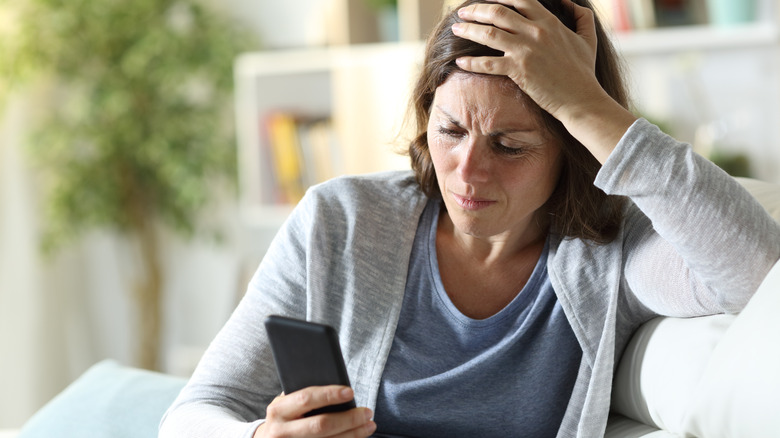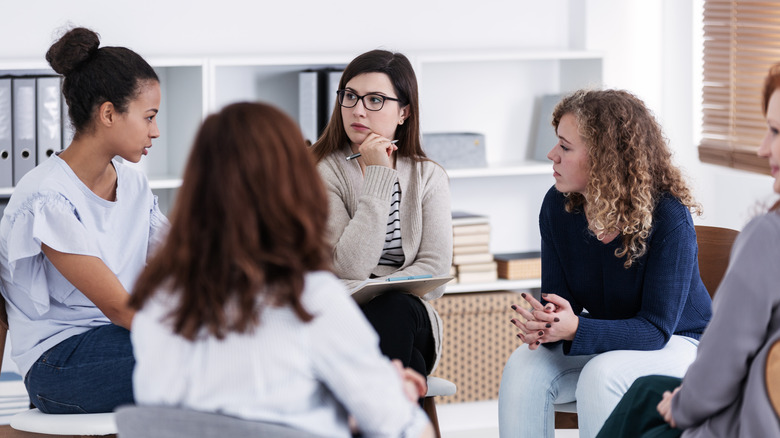How To Cope With Social Anxiety In The Wake Of Post-Pandemic Life
For over two years now, we've lived with the uncertainty of a deadly virus. Masks became a daily garment, we had to stay home if possible, social distancing became a familiar phrase, and most days, we had no idea what was next to come in the COVID-19 pandemic. As COVID-19 rates drop and restrictions lift across the country, you might feel a bit like a bear emerging from hibernation after a long winter. And for some of us, social anxiety comes right along with it. Whether feeling socially anxious is brand new for you or entirely familiar, learning how to cope with this re-entry stress will help make the transition smoother.
15 million Americans, or 7% of the population, have social anxiety disorder, according to Mental Health America. This disorder is a severe fear of interacting with others, leading to intense dread, panic, and worry. In extreme cases, it can interrupt and affect one's daily quality of life. According to the World Health Organization, the global rates of anxiety and depression rose by 25% in the first year of the pandemic, citing unprecedented stress stemming from social isolation. Women and young people were affected the most, but anyone is susceptible to mental health struggles.
What to look for and how to handle it
For those who took precautions during the pandemic and limited their social interactions, re-entry back into regular life may feel difficult. "I think a lot of people are experiencing unexpected feelings," Dr. Franklin Schneier, co-director of the Anxiety Disorders Clinic at The New York State Psychiatric Institute, told Healthline. "Even people who aren't particularly socially anxious may feel a bit awkward jumping back into activities that were previously comfortable for them."
It might feel hard to know how to act, since social rules have shifted now. Are maskless hugs okay? Is a handshake appropriate? This uncertainty can contribute to anxiety symptoms like severe discomfort, embarrassment, a racing heart, sweating, nausea, and dizziness (via Healthline). If the anxiety is mild enough, acknowledging it and then moving on may be enough to quell your fears. Having a game plan ahead of time can also be useful, since you'll be ready to address it when and if it comes on. It's also important to pay attention to any alcohol consumption. While a drink or two can act as a social lubricant, overdoing it can actually make the problem worse in the long run.
If you or someone you know is struggling with mental health, please contact the Crisis Text Line by texting HOME to 741741, call the National Alliance on Mental Illness helpline at 1-800-950-NAMI (6264), or visit the National Institute of Mental Health website.


